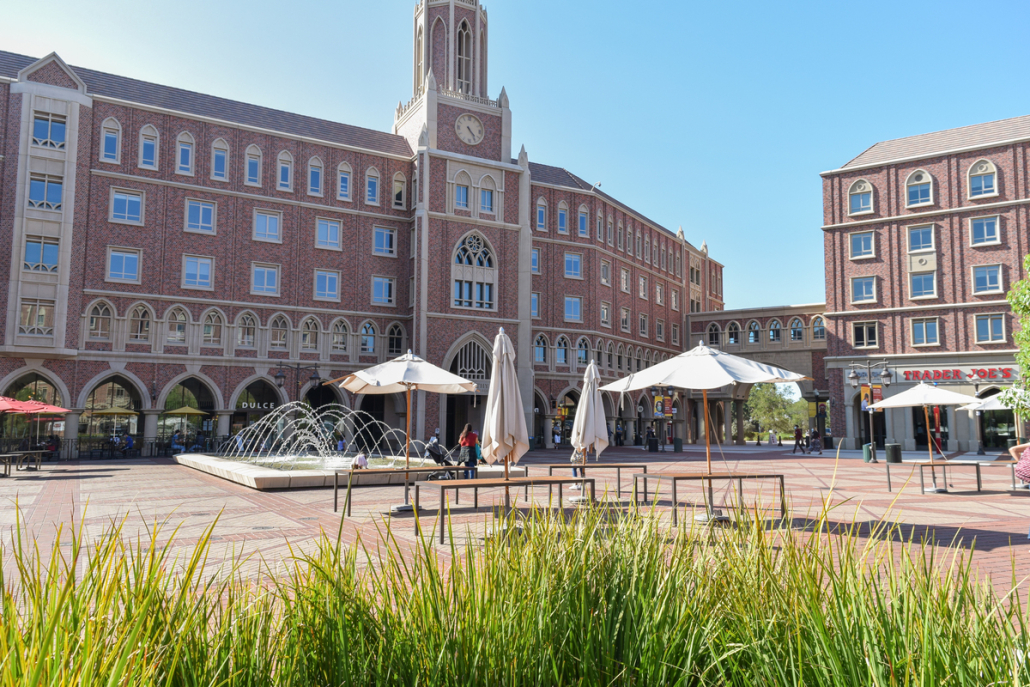Alumnus aids students with resumes, career confidence

In an installment of Tuesday’s Tea, a speaker series that educates students professionally, alumnus Nate Delgado spoke to USC Village residents about “Forget Algebra,” a resource he designed to expose and prepare students for the professional world. A Fall 2019 graduate who works in cybersecurity for Deloitte, Delgado advised attendees, ranging from freshmen to seniors, on how to elevate their resume game to enhance their careers.
During his time at USC, Delgado majored in economics with a minor in applied computer security. Three years ago, Delgado said he discovered that broad interests such as these had accidentally characterized him as a professional and financial advisor among his friends and family.
“I wanted to share my passion for professional development and personal finance with the next generation,” he said.
Enter Forget Algebra, a website and program that aims to increase the confidence and competence of young adults entering the working world across the country.
“This kind of resource doesn’t exist in traditional education,” he said. “You can go your whole life — and that could be middle school, high school, college — and no one’s ever gonna sit you down and say, ‘Here’s how to make an effective resume.’”
Just a few years older than the majority of students he works with, Delgado cites the difference between Forget Algebra and other resume services in the delivery, not the details.
“What I’m bringing is the energy and the enthusiasm and making it real for the students I’m talking to,” he said.
Before the event, Delgado surveyed attendees on how confident they felt with their resumes and ability to seek advice on professional development, with 76% and 73%, respectively, saying that they didn’t feel confident.
To Delgado, distinguishing a resume is a three-step process: One, identifying an area of struggle; two, developing a plan for improvement and three, executing the plan to diminish the burden of that weakness on one’s personal and professional life.
“It shows anyone that you’re talking to that you are self-aware, a self-starter, and that you are welcoming growth and are able to grow, evolve and become a stronger candidate for the position, or as an employee in general,” he said.
Alex LaRosa, a freshman majoring in economics, attended the event and said Delgado’s ability to engage students throughout was a benefit.
“I left with a much more solid concept of what a resume should look like,” LaRosa said. “A lot of what I had walked in with, I now realize probably wouldn’t have gotten me the job opportunities I now have the ability to get.”
For LaRosa, while the content was helpful, he felt Delgado’s delivery had the most impact.
“The way he approached resumes from many different angles made me walk out with a much greater sense of not only how to make a resume, but how to make a splash in the business world,” he said.
Riya Gupta, a freshman majoring in business of cinematic arts, also said Delgado had an engaging strategy. Specifically referring to the “resume roast,” in which Delgado would review a student-submitted resume and offer constructive feedback in a comedic setting, Gupta said the interactive style left her wanting more.
“It was interesting to see, because anyone could give facts about what makes a good resume, but having an example in real-time and giving feedback on that is especially helpful,” she said.
Looking forward, Gupta said she would attend similar workshops.
“You can always find a way to improve your resume,” she said. “Even for me, as someone who has had a resume for a couple of years, I learned some tips on how to improve it and put things into a better perspective.”
With plans in the works to bring Forget Algebra back to campus in the spring, Delgado is excited to expand Forget Algebra as a cross-country endeavor of people helping people.
“Ultimately, what Forget Algebra can really be effective in is using the in-person conversations as a starting point, and then looping students and young adults into the fold to forge some sort of Forget Algebra community,” he said.
After all, Delgado said, Forget Algebra is designed as a starting base or a catalyst for professional adventure.
“It’s so much more than just a website, a set of tools, or articles or blog posts,” he said. “It’s going into classrooms, on campuses or into people’s real lives and sharing these ideas in a way that is engaging, genuine, realistic, concrete and actionable: helping people realize that this stuff doesn’t have to be that complicated.”

